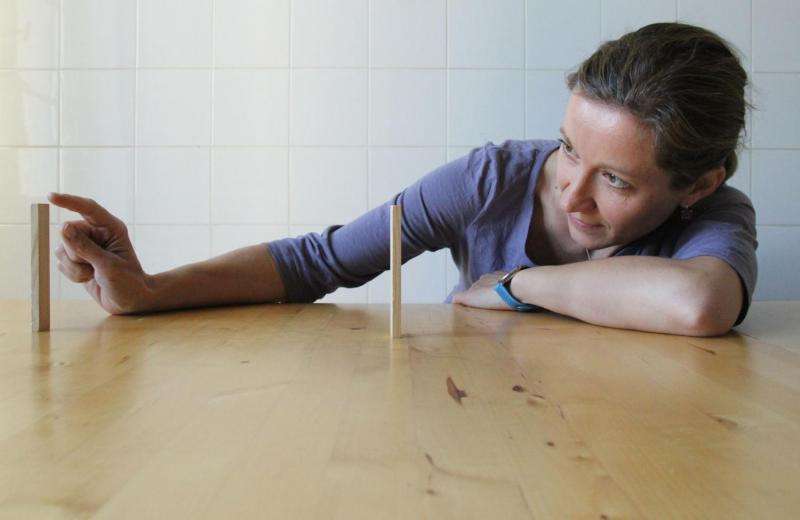How experience may lead to misperception

Distance, volume, brightness or duration—when judging magnitudes, we make systematic errors. A new model of Munich researchers combines two competing classical theories of magnitude estimates and attributes prior experience to play an important role. The study has been published in the current edition of the journal Trends in Cognitive Sciences.
How long is the way from the city hall to the train station? When we estimate distances, something curious happens: short distances seem longer, and long distances shorter than they really are. Similar biases occur during judgments of volume, brightness or time. Psychologists call this phenomenon Vierordt's law. Its independence of the involved sensory systems suggests that our brain possesses universal principles for the assessment of physical quantities. However, where do the characteristic estimation biases stem from? In collaboration with colleagues from Zurich, neuroscientists at the Bernstein Center Munich and the LMU Munich provide a new explanatory model, in which previous experience holds an important role.
"Our approach is based on probability theory and allows to reinterpret and combine two seemingly contradictory classic theories," explains Stefan Glasauer, one of the authors of the study. The first theory of magnitude estimation is the Weber-Fechner law proposed in 1860. Some 100 years later, Stanley Smith Stevens introduced a power law and asserted that it was incompatible with the Weber-Fechner law. This opinion is now disproved: "Using Bayes' theorem from classical probability theory, both theories can be integrated into a new model," Glasauer says.
In contrast to the previous approaches, the new model of the brain researchers also takes into account how prior knowledge affects the judgment of physical quantities. "We automatically gain experience with each magnitude estimation. This knowledge certainly affects subsequent estimates and is one of the causes leading to systematic estimation biases," Glasauer explains. In the process, learning occurs unconsciously and requires no feedback on the success of the assessment. "We hope that our approach will serve to better understand the neurobiological mechanisms of magnitude judgments," Glasauer concludes.
More information:
F. H. Petzschner, S. Glasauer & K. E. Stephan (2015): A Bayesian perspective on magnitude information. Trends in Cognitive Sciences, 19(5), 285-293.
DOI: 10.1016/j.tics.2015.03.002
















